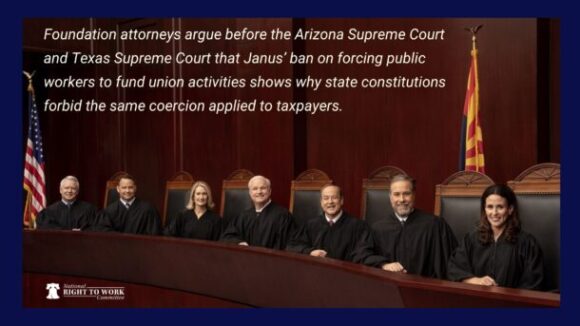Will Team Biden Weaponize Workers’ Pensions?
Big Labor abuse of worker pension and benefit funds as a means of advancing union bosses’ self-aggrandizing policy objectives is a familiar phenomenon.

Today marks one week since Labor Day, and as we all head back to work after another weekend, let’s not forget our rights as hard-working citizens.
Here’s a word from National Right to Work President Mark Mix, as written in Washington Times:
Workers in the public sector are building off their victory in Janus v. AFSCME, a 2018 Supreme Court decision that effectively brought Right to Work protections to all government workers by ruling compulsory union membership in the public sector violates the First Amendment.
Mark Mix, Washington Times
Even after our win in the Supreme Court, union bosses still try to find loopholes around it such as enforcing “card checks” and “escape periods” on workers.
Chicago educators Ifeoma Nkemdi and Joanne Troesch refused to cave to this union tomfoolery, insisting they could exercise their First Amendment Janus rights at any time. They sued the Chicago Teachers Union and Chicago school board demanding the union’s “escape period” scheme be abolished.
Mark Mix, Washington Times
You can read more about these tactics as well as the benefits of Right to Work laws and what’s being done to maintain them for you by reading the full article here.
If you have questions about whether union officials are violating your rights, contact the Foundation for free help. To take action by supporting The National Right to Work Committee and fueling the fight against Forced Unionism, click here to donate now.

Big Labor abuse of worker pension and benefit funds as a means of advancing union bosses’ self-aggrandizing policy objectives is a familiar phenomenon.

What impact does handing a union monopoly power to deal with your employer on matters concerning your pay, benefits, and work rules have on your pay?

Foundation attorneys argue before the Arizona Supreme Court and Texas Supreme Court that Janus’ ban on forcing public workers to fund union activities shows why state constitutions forbid the same coercion applied to taxpayers.